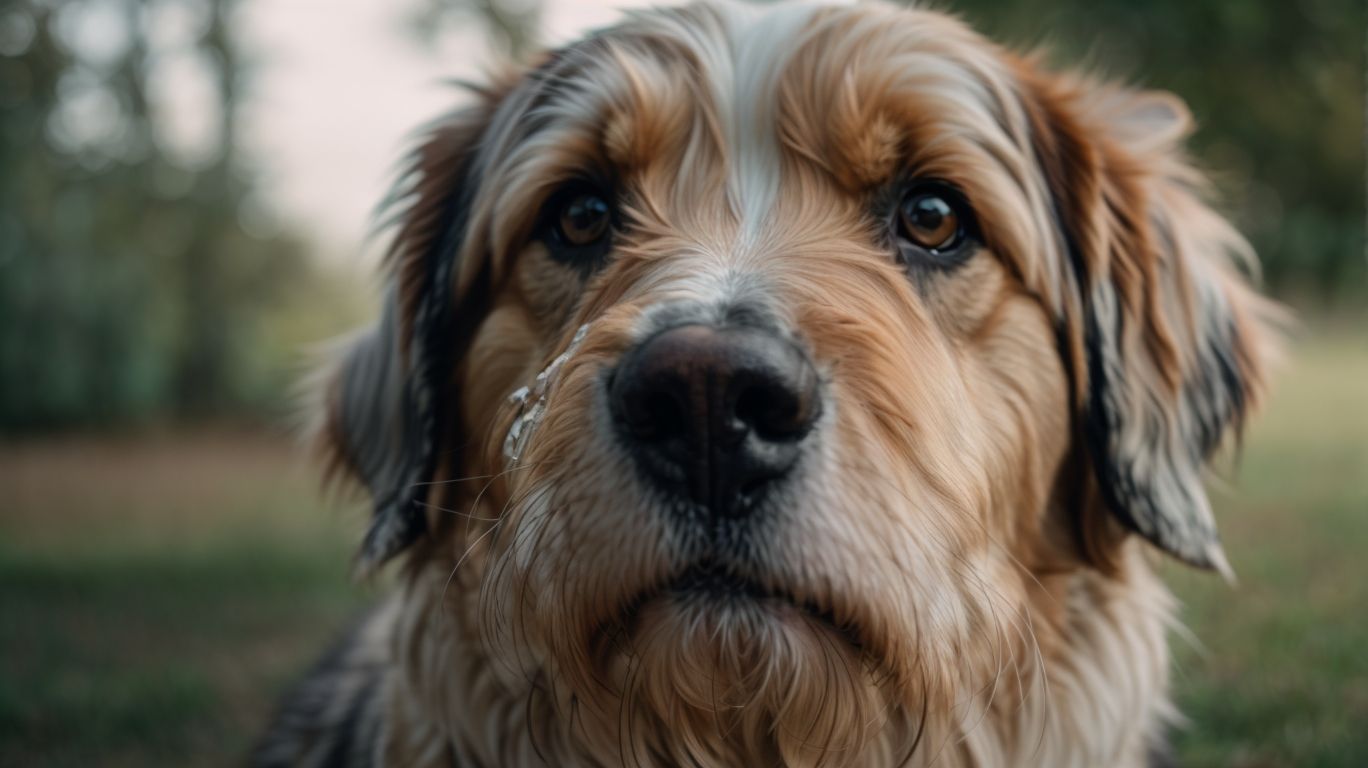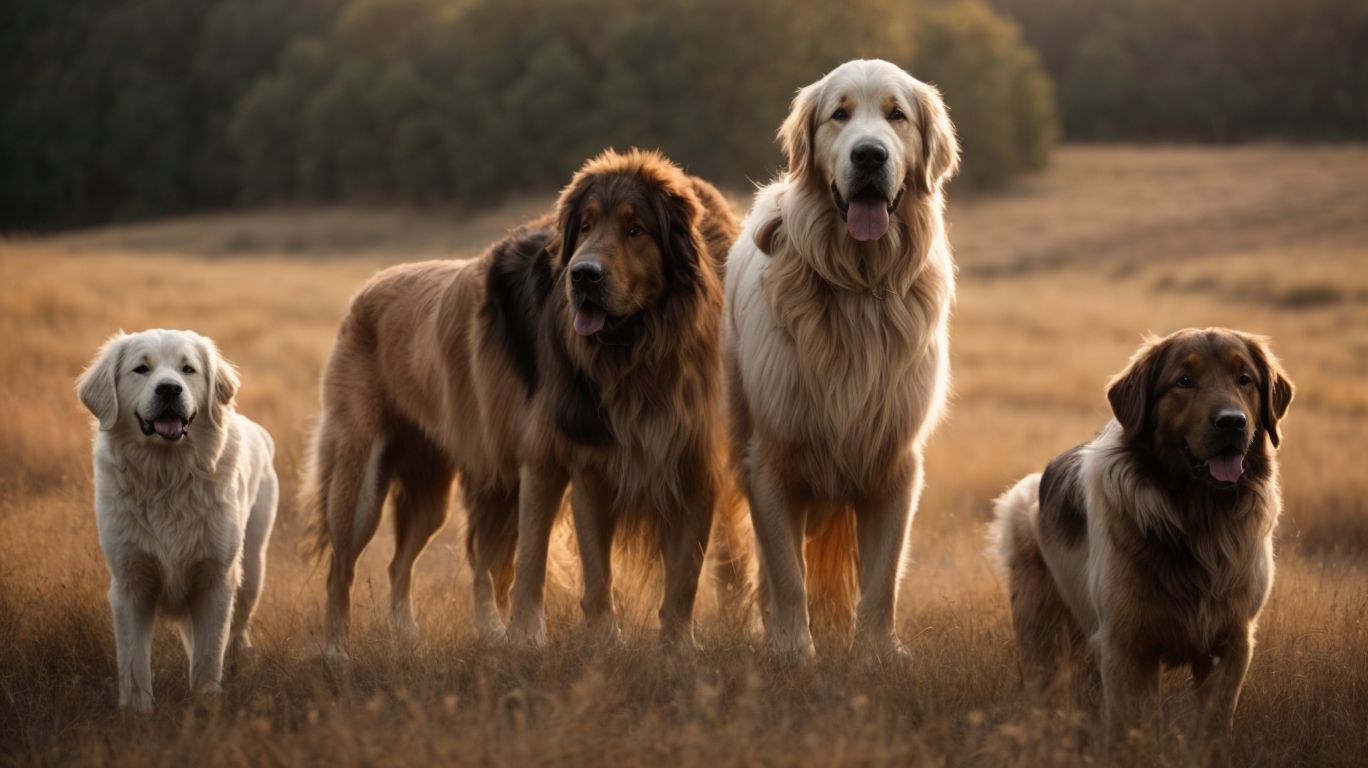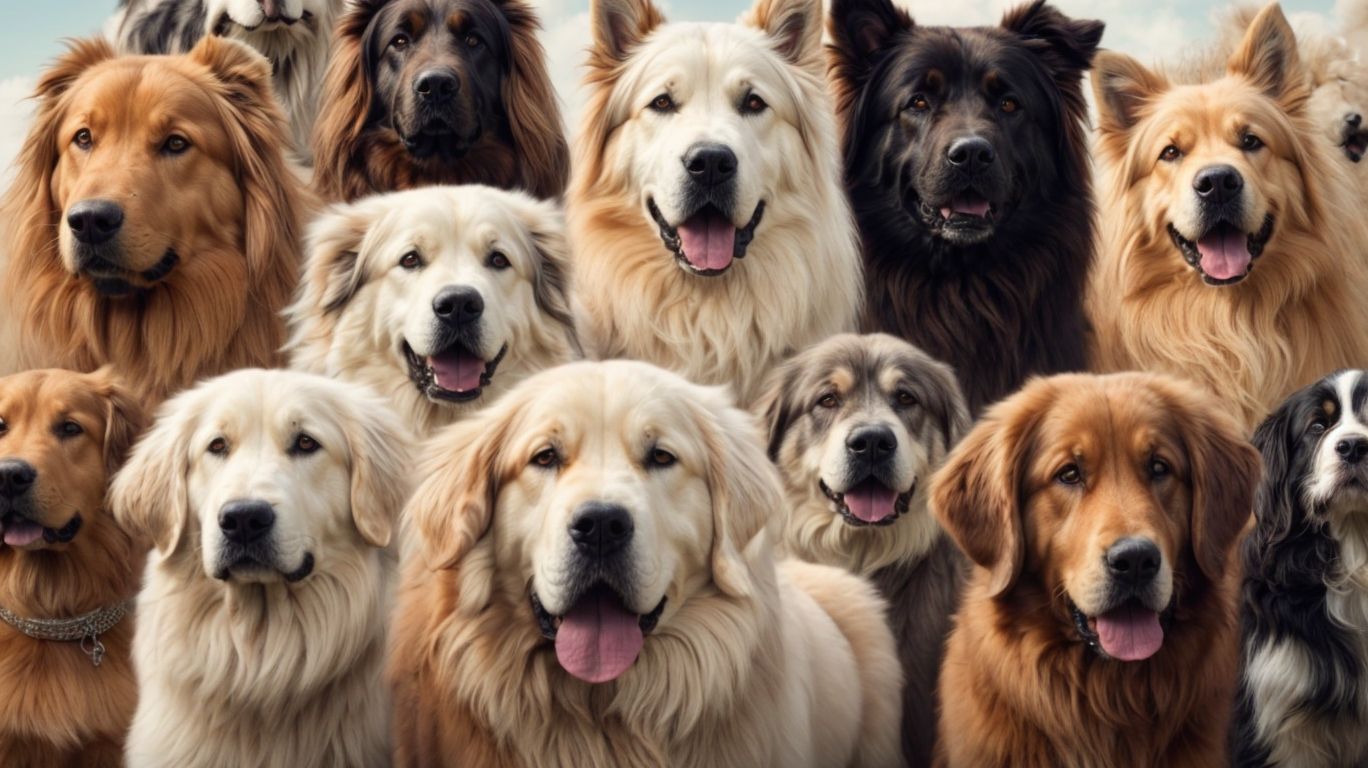
Understanding and Addressing Nose Dripping in Senior Dogs
Are you noticing your senior dog has nose dripping? This can be worrying for any pet owner. In this article, we’ll delve into the potential reasons for nose dripping in older dogs, such as allergies, infections, dental problems, and tumors.
We’ll also cover how to determine if the nose dripping is a serious issue, the treatment options available, and ways to prevent it from happening. By the end of this article, you’ll have a better grasp on how to handle nose dripping in your senior dog.
What Causes Nose Dripping in Senior Dogs?
Nose dripping in senior dogs can be caused by various factors such as allergies, infections, dental issues, and tumors. As dogs age, their nasal passages and mucous membranes may become more susceptible to discomfort, leading to nasal congestion and sinus problems.
This increased vulnerability could be due to the natural aging processes affecting their immune system and overall health. Aging can also impact the production and quality of nasal mucus, making senior dogs more prone to runny noses.
Age-related changes in the respiratory system, such as decreased lung elasticity and weakened respiratory muscles, can contribute to nasal discharge in older dogs. It’s crucial for pet owners to be aware of these potential age-related health issues and seek veterinary advice to ensure the wellness and comfort of their senior canine companions.
Allergies
Allergies can trigger nose dripping in senior dogs, often stemming from environmental factors that may challenge their immune system and overall health.
This may lead to discomfort, reduced energy, and even changes in behavior. Senior dogs may exhibit symptoms such as itching, skin rashes, and ear infections, which can significantly impact their quality of life.
It’s important for pet owners to work closely with their veterinarian to identify the specific allergens affecting their senior dogs and to develop a comprehensive management plan. This may involve allergy testing, dietary adjustments, and potentially medication to alleviate symptoms and support their overall health.
Infections
Infections in the respiratory system can lead to nasal discharge and discomfort for senior dogs, requiring prompt veterinary care and accurate diagnosis to address the underlying issues.
Respiratory infections in senior dogs can cause coughing, sneezing, and difficulty breathing, greatly affecting their quality of life. Due to their age, older dogs may have weakened immune systems, making them more vulnerable to these infections. It’s important to seek prompt veterinary care to identify the type of infection and provide appropriate treatment, which may include antibiotics, antiviral medications, or supportive care. Regular monitoring and follow-up care are crucial for managing respiratory infections in senior dogs and promoting their well-being and comfort.
Dental Issues
Dental issues, such as periodontal disease, can contribute to nose dripping in senior dogs, highlighting the importance of proper dental care as an essential aspect of senior pet wellness and hygiene.
This correlation underscores the significance of routine dental check-ups and cleanings for senior dogs. Neglecting dental health can lead to bacterial growth, which may affect the sinuses and lead to nasal discharge.
Senior dogs may experience decreased immune function, making them more susceptible to oral health problems. Therefore, maintaining good dental hygiene is crucial for preventing potential issues and ensuring overall well-being in aging canine companions.
Tumors
Tumors in the nasal passages or sinuses can cause nasal discharge in senior dogs, necessitating the expertise of veterinary professionals for comprehensive pet health management.
Veterinary professionals play a crucial role in diagnosing conditions in senior dogs. This involves thorough physical examinations, advanced imaging techniques, and possibly biopsies.
Once diagnosed, the veterinary team develops personalized treatment plans. These may include surgery, radiation therapy, or medication. Ongoing monitoring and follow-up care are essential to ensure the well-being of dogs with tumors. Veterinary professionals also provide valuable guidance to pet owners on maintaining a comfortable and supportive environment for their furry companions during this health challenge.
How Can You Tell if Your Senior Dog’s Nose Dripping is Serious?
Recognizing the seriousness of nose dripping in senior dogs involves assessing the frequency, duration, consistency, color of discharge, and observing any other concurrent symptoms that may indicate underlying health concerns.
It is important to note that persistent or unusual nose dripping, particularly if it is accompanied by sneezing, coughing, lethargy, loss of appetite, or any changes in behavior, warrants immediate attention from a veterinarian.
The consistency and color of the discharge can provide crucial insights; for instance, thick, yellow or greenish discharge may indicate an infection, while clear and watery discharge could signal allergies or other issues. A thorough examination by a veterinary professional is necessary to rule out potential causes and ensure appropriate treatment.
Frequency and Duration
Monitoring the frequency and duration of nose dripping episodes in senior dogs is crucial for identifying potential pet health concerns and addressing senior pet health issues in a timely manner.
It is important to note that excessive or persistent nose dripping could be indicative of underlying respiratory infections, allergies, dental issues, or even more severe conditions such as tumors or nasal polyps.
Seniors dogs are more susceptible to weakened immune systems and chronic health conditions, making timely evaluation and intervention critical. By observing and documenting the occurrences of nose dripping, pet owners and veterinarians can better understand the health status of senior dogs and provide targeted care to ensure their well-being.
Consistency and Color of Discharge
Observing the consistency and color of nasal discharge in senior dogs can offer valuable insights into potential pet health issues, aiding in the identification of specific pet health problems that require attention.
This assessment can provide early indications of respiratory infections, allergies, or even more serious conditions such as nasal tumors or foreign body obstructions.
Changes in the discharge color, such as yellow or greenish tinges, or a significant shift in consistency can signal an underlying problem that needs prompt veterinary evaluation. By monitoring these symptoms, pet owners can take proactive measures to ensure their pet’s well-being and address any potential health concerns in a timely manner.
Other Symptoms
Aside from nose dripping, observing any other symptoms such as sneezing, coughing, or breathing difficulties is essential for comprehensive pet health care and addressing potential pet health concerns in senior dogs.
These symptoms could indicate a range of health issues, including respiratory infections, allergies, or even underlying diseases.
Being vigilant about any changes in your pet’s behavior or physical condition can help in early detection and prompt treatment, ultimately ensuring their well-being.
Regular veterinary check-ups and open communication with your veterinarian are crucial in monitoring and addressing any potential health concerns, providing effective pet healthcare.
It’s also important to maintain a healthy living environment and ensure your pet’s nutrition and exercise are in line with their specific needs.
What Are the Treatment Options for Nose Dripping in Senior Dogs?
The treatment options for nose dripping in senior dogs may include antibiotics, antihistamines, dental care, and in some cases, surgical intervention, aiming to alleviate discomfort and address underlying pet health issues while promoting overall pet wellness.
Veterinary care plays a crucial role in diagnosing the underlying cause of nose dripping in senior dogs. A thorough examination by a veterinarian may reveal infections, dental problems, allergies, or other health issues.
Depending on the diagnosis, the treatment plan may involve antibiotics to address infections, antihistamines to manage allergies, dental care to address dental issues, and in severe cases, surgical intervention to correct structural abnormalities or address chronic conditions. Utilizing these treatment options, along with regular monitoring and preventive care, can significantly improve the well-being of senior dogs suffering from nose dripping.
Antibiotics
Antibiotics may be prescribed to combat bacterial infections contributing to nose dripping in senior dogs, forming a crucial component of pet health care strategies aimed at addressing underlying infections.
These medications work by targeting and killing the bacteria responsible for the infection. This aids in the resolution of symptoms such as nose dripping.
It is important for pet owners to administer antibiotics as prescribed by the veterinarian. This ensures the efficacy of the treatment and prevents the development of antibiotic resistance. Integrating antibiotics into pet health care plans can greatly contribute to managing and preventing infections, ultimately promoting the overall well-being of senior dogs.
Antihistamines
Antihistamines can help manage allergy-related nose dripping in senior dogs, providing relief and supporting comprehensive pet health management targeted at addressing allergic reactions.
Antihistamines work by blocking the effects of histamine, a substance released during allergic reactions. This reduces symptoms such as sneezing, itching, and excessive nose dripping. By alleviating these symptoms, antihistamines play a crucial role in enhancing the overall well-being of senior dogs suffering from allergies.
Incorporating antihistamines into pet health management plans can help pet owners effectively address the challenges posed by allergy-related symptoms. This offers their beloved companions the relief they need and ensures they can enjoy a better quality of life.
Dental Care
Proper dental care is essential in addressing nose dripping in senior dogs, highlighting the significance of maintaining pet hygiene and implementing preventive measures to minimize potential dental-related causes.
Maintaining good dental hygiene in pets is crucial for overall health and wellbeing. Poor oral health in dogs can lead to a buildup of bacteria, causing inflammation and infection that may contribute to nasal discharge.
Regular dental check-ups, teeth cleaning, and providing dental chews or toys can help prevent dental issues and subsequently reduce the likelihood of nose dripping. By prioritizing dental care, pet owners can play an active role in safeguarding their pet’s health and ensuring a comfortable and happy life for their furry companions.
Surgery
In severe cases, surgical intervention may be necessary to address underlying issues contributing to nose dripping in senior dogs. This highlights the importance of accurate pet health diagnosis and tailored veterinary care.
This specialized surgical treatment plays a crucial role in addressing chronic conditions such as nasal tumors, polyps, or severe nasal infections that may be causing the persistent nose dripping.
Veterinary surgeons possessing advanced expertise are essential for accurately identifying and addressing these underlying issues. The success of the surgical intervention greatly depends on the thorough evaluation and specialized care provided by experienced veterinarians, ensuring the overall well-being and health of the senior dogs.
How Can You Prevent Nose Dripping in Senior Dogs?
Preventing nose dripping in senior dogs involves regular vet check-ups, proper dental care, and managing allergies, complemented by the utilization of natural remedies and holistic approaches to support overall pet wellness and senior pet care.
Regular vet check-ups are essential to monitor and address any underlying health issues that may contribute to nose dripping. Maintaining proper dental care can prevent dental disease, which can cause nasal discharge.
It’s vital to identify and manage any allergies that might trigger nasal discharge in senior dogs. Natural remedies such as steam inhalation and saline nasal sprays can provide relief. Ensuring a healthy diet and regular exercise can support the immune system and overall well-being of senior dogs.
Regular Vet Check-ups
Regular vet check-ups play a vital role in preventing nose dripping in senior dogs. These check-ups are crucial for the health of senior pets, as they help veterinarians detect any underlying health issues that may cause nasal discharge. Senior dogs are especially prone to respiratory infections, allergies, and dental problems, all of which can lead to nose dripping. By catching these problems early, vets can provide proper treatment and preventive care to improve the senior dog’s quality of life.
Proper Dental Care
Proper dental care is crucial in preventing nose dripping in senior dogs, forming an integral aspect of senior pet care and promoting overall pet wellness to minimize potential dental-related causes.
It is essential to understand that poor dental hygiene in senior pets can lead to dental diseases, which may result in infection and inflammation.
These conditions can contribute to nasal discharge, leading to discomfort and potential health issues.
By implementing routine dental care, such as regular brushing and professional cleanings, pet owners can help maintain their senior dogs’ oral health and prevent potential complications that can lead to nose dripping.
Prioritizing dental care in senior pet wellness can significantly improve their overall quality of life.
Managing Allergies
To effectively manage allergies in senior dogs and prevent nose dripping, it’s important to take proactive measures and follow healthcare tips that promote pet wellness and minimize allergy-related symptoms.
This includes monitoring the dog’s environment for potential triggers, such as dust, pollen, or certain foods, and taking steps to minimize exposure.
Regular veterinary check-ups and discussions with the veterinarian can provide valuable insights and guidance on managing allergies in senior dogs, ultimately contributing to their overall health and well-being.
By implementing these strategies and staying informed about pet wellness and healthcare tips, dog owners can effectively address allergy-related issues and help their senior pets enjoy a better quality of life.




No Comments